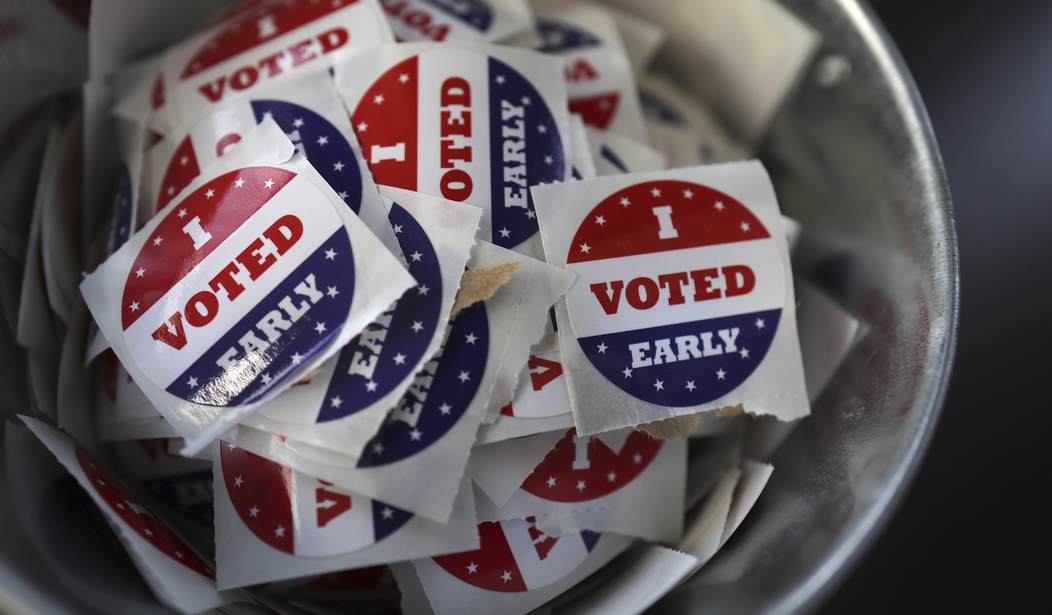Since the summer, major news outlets have been fascinated with campaign outreach efforts to America’s hunters, anglers, and gun owners.
New York Post swing state reporter Victoria Churchill first brought the effort to light examining why gun owners and hunters reportedly sit out of elections. Her reporting, supported by data from Vote4America, found 10 million of these sportsmen and women simply don’t vote. That can make or break elections - especially in decisive swing state contests. MeatEater contributor Jordan Sills similarly wrote about hunter voting behaviors recently, and how this demographic could tilt the election on November 5th.
While conservation overtones are found in both campaigns, it’s obvious one is more friendly to sportsmen and women than the others. What’s being overlooked nationally, however, is the effort to enhance - or erode - conservation. Let’s examine three proposed ballot measures in Arizona, Colorado, and Florida.
Arizona Proposition 134
One ballot measure that hasn’t received much attention is Arizona Proposition 134. Supporters of the yes on Prop 134 effort argue, “A vote for Proposition 134 is a vote for equal representation in the ballot initiative process.”
While not an overt conservation measure, pro-hunting groups like HOWL for Wildlife, a nonprofit that supports “conservation & management of fisheries & wildlife through science based data with action & engagement,” is backing the effort.
They describe the measure as follows: “Prop 134 helps all Arizonans get the representation they need and avoid dangerous measures that threaten their way of life. We'd like to draw attention to how Prop 134 would help hunters. Ballot Box Biology, as we've recently seen in states like Colorado, is a real danger to science-based wildlife management. Currently Arizona could see ballot box biology on their ballot with ALL of the required signatures for a ballot initiative coming from Maricopa County alone. Prop. 134 would require ballot measures to receive support from registered voters from each of the 30 legislative districts in Arizona. Prop. 134 would ensure that all of Arizona’s communities have a say in what makes the ballot.”
Recommended
Colorado Proposition 127
The most problematic of the three, Colorado Proposition 127, is giving sportsmen and women deja vu to 2020 after voters narrowly supported the forced reintroduction of gray wolves in the Centennial State.
A “yes” vote on Prop 127 would ban the hunting and management of mountain lions, bobcats, and lynx in the state. Anti-hunters refer to management as “trophy hunting.” Opponents of Prop 127 rightfully see this as a death by a thousand cuts measure that would inevitably ban all forms of hunting. Their fears are warranted, because this is what ballot box biology has already delivered there.
In a strong rebuke of Prop. 127, the Colorado Wildlife Employees Protective Association, representing 200 current Colorado Parks and Wildlife employees, said science-based professionals - not Colorado voters - should manage wildlife populations.
“Colorado’s wildlife story is written because of our membership and those who have come before us have devoted our careers to following the best available research and proven wildlife management strategies,” stated association president Casey Westbrook, in a release reported by Denver Post. “Keeping management with wildlife managers is key to protecting Colorado’s wildlife for future generations.”
Looking to California, where mountain lion hunting is already prohibited, cats are dying in greater numbers than they did pre-1990. Are animal rights activists thinking in the best interests of Big Cats? They’re not.
Coloradoans will hopefully learn from the botched forced reintroduction of gray wolves when voting early or heading to the polls on November 5th.
Florida Amendment 2
Floridians have many ballot measures to sift through - with an important one being Amendment 2: protecting the right to fish and hunt in the Sunshine State. The ballot measure cruised through the Florida legislature with a near unanimous vote - save for one Democrat lawmaker. In order for this measure to become law, it needs to secure over 60 percent of the vote total Radical environmental groups like the Sierra Club and Tiger King nemesis Carol Baskin have actively misled about the Yes on 2 campaign. Groups like the Humane Society have declared their intent to “end hunting everywhere.”
Right to hunt and fish amendments aren’t fringe or novel. 23 states - including my adopted state, Virginia - already have codified fishing, hunting, and trapping, into their state constitutions. There’s no decimation of wildlife, no threat to property rights, and no skirting of laws in states where these constitutional amendments are law.
Florida wants to preemptively protect itself from ballot box biology. And 23 states recognize the value of these amendments. The National Conference of State Legislatures (NCSL) says these amendments arise out of the following concerns: "Increasing urbanization, decreased habitat, declining numbers of sportsmen, and more restrictions on hunting are common factors in the quest to assert the right to hunt and fish in a state's most basic and difficult-to-amend document."
Why should anglers, hunters, and gun owners care about these three ballot measures, even if they reside outside these three states? Because statewide elections can have national implications - both good and bad.
Preserving conservation is a laudable goal, as is currently presented in Arizona and Florida. Should Colorado voters repeat the mistakes of 2020’s Proposition 114, then the future of true conservation efforts could be at stake.

























Join the conversation as a VIP Member